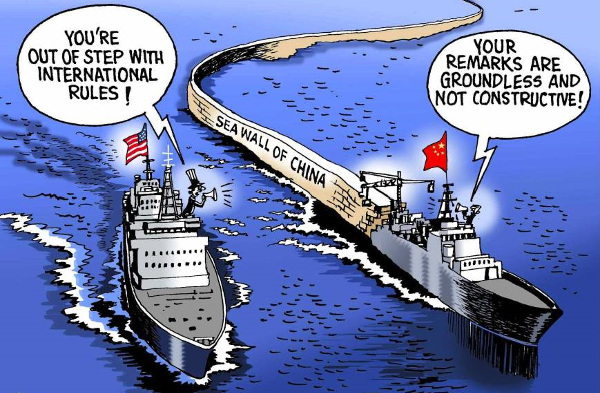 Reprinted from February 26, 2015.
Reprinted from February 26, 2015.
Editor’s Note: On 13 January 2015, Dr. Chodakiewicz gave remarks on Russian strategy at the US Army Europe Senior Leaders Forum in
Germany, entitled “Muscovite Continuity: An Integrated Strategy and Counterintelligence Operation.” Derringer Dick, a former Intelligencer analyst, interviewed him with some follow-up questions. We highly recommend reading Dr. Chodakiewicz’s original remarks, available here: http://bit.ly/1JND0xB
1. What are Russia’s strategic mindset and motivations and what lens should we use to interpret Russia’s actions?
MJC: The Kremlin’s strategic objective is to restore the Empire. History is the lens to interpret Moscow’s actions.
2. If Russian citizens genuinely feel threatened by the west, as you said at the US Army Europe Senior Leaders Forum, how can the West work to build solidarity with the Russian populace (and thus undermine Russian propaganda)?
MJC: In a short run, this can be done by deploying counterpropaganda: overt and covert. Public diplomacy should be the best tool here. Setting up a Russian language TV station is a must. There should also be a cyber propaganda offensive. Social media need to be mobilized. In the long run, we must set up a strategic goal. This entails rigorous analysis of the situation. First, is it desirable for the US to “build solidarity with the Russian” population? If yes, then how? The only way to do so is when they are convinced that they prefer someone else than the current denizens of the Kremlin. That means we would have to support a viable alternative and help with a regime change.
3. Do the Russian people have concerns about the West and Western culture that are legitimate?
MJC: Sure. The excesses of counter-cultural revolution that the 1960s spawned in the US are legitimate fears all over the world, not only in Russia. Must Marxism-lesbianism be obligatory everywhere?
4. How can Patrick Henry College students, as Westerners and as Christians, critique the problems of the current Western worldview without reinforcing anti-Western sentiment in Russia and elsewhere?
MJC: That’s easy. Stop depicting counter-cultural pathologies currently dominant in the West, including post-modernism and deconstruction, as the Western mainstream. The counter-culture has successfully sold itself as being “Western” and that seriously damages America’s image as a decent nation.
5. Is it credible to consider Russia a conventional military threat to Western Europe when their military spending is much lower than the combined spending of NATO nations (even absent the United States) and the area they have to defend is much larger? What about the unconventional military threat?
MJC: By “their” you mean “its”—love the mother tongue. Yes, it is credible to consider Russia as a conventional military threat. First, Russia’s military budget is a state secret, so how do you know what they spend? Second, combined spending of NATO nations basically means that America pays for everyone else in the alliance. Others hardly contribute what they should, if they do at all. Third, and most importantly, I do not see the will of any NATO member states to face Russia unless the United States stands on the front line. Fourth, Russia very much has the will to use force to take out whatever obstacles it deems necessary to get its way.
As far as the unconventional military threat, if you are referring to the nuclear war, Russia is the only country in the world that can destroy the United States because the Kremlin inherited the Soviet Union’s nuclear arsenal. If by the
unconventional military threat you mean irregular warfare, or special operations, Moscow is extremely apt at it and must be considered extremely dangerous. It specializes in active measures, or all dirty tricks of political warfare short of violence, and covert action, including paramilitary operations. We are light years behind the Russian Federation in such capabilities.
6. Since the end of the Cold War, there seems to be a noticeable lack of a worldwide big-picture “grand strategy” employed by the United States. Should the United States have a grand strategy, and what should it focus on?
MJC: The US had pursued a grand strategy briefly during the 1980s; earlier it cravenly pursued détente. America must have a grand strategy and it should focus on perpetuating our supremacy in the world. It should be based on the idea of free trade and cooperation with the likeminded, providing strong leadership to attract as many as possible under our banners, and propagandizing for a decent civilization which, for me, is inexorably tied to Christianity. ■
Photo Credit:
Marek Jan Chodakiewicz © IWP.edu





